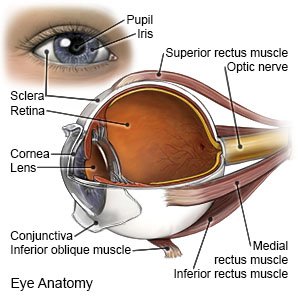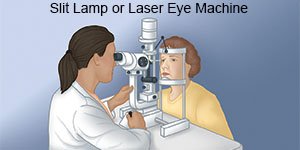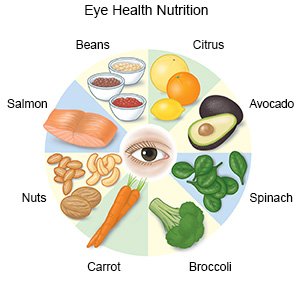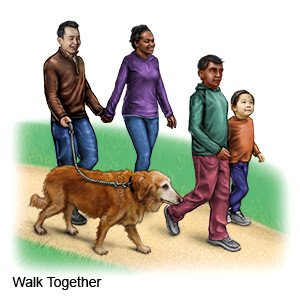Retinal Hemorrhage
Medically reviewed by Drugs.com. Last updated on Apr 6, 2025.
AMBULATORY CARE:
Retinal hemorrhage
is bleeding from the blood vessels in the retina, inside your eye. Your retina is the thin layer that lines the back of your eye.
 |
Signs and symptoms of retinal hemorrhage:
You may have no symptoms. You may have a sudden or gradual loss of vision, ranging from mild to severe. You may have blind spots.
Seek care immediately if:
- You cannot see, or your vision is greatly reduced.
Call your doctor or ophthalmologist if:
- Your vision does not improve.
- You develop new vision problems, such as a lazy eye, or blind spots.
- You have questions or concerns about your condition or care.
Treatment
may not be needed, because a retinal hemorrhage often heals by itself. If your bleeding is caused by a medical condition, your healthcare provider will treat that illness. You may need any of the following:
- Steroid medicine may be given if you have macular degeneration.
- Laser treatment may be used to stop the bleeding.

Protect your vision:
Your healthcare provider will tell you when it is okay to do your regular activities if you receive treatment. He or she will tell you if you need to change or stop any activity that may damage your retina. The following can help you build and keep eye health:
- Manage health conditions that can cause vision problems. Common examples include diabetes, high blood pressure, and high cholesterol. Follow up with healthcare providers who manage these conditions.
- Wear sunglasses with ultraviolet (UV) light protection. UV light from the sun can damage your eyes. It can increase your risk for vision loss.
- Eat foods that contain eye-healthy nutrients. Healthy nutrients include vitamin A, vitamin C, vitamin E, omega-3 fatty acids, lutein, and zeaxanthin. They can be found in foods such as spinach, peanuts, salmon, collard greens, avocados, squash, eggs, and blueberries. Ask your healthcare provider for a full list of foods that contain eye-healthy nutrients. You may also need to take a vitamin or supplement to help you get enough of these nutrients.

- Exercise as directed. Ask your healthcare provider about the best exercise plan for you.

- Do not smoke. Nicotine can damage blood vessels in your eyes. Do not use e-cigarettes or smokeless tobacco in place of cigarettes or to help you quit. They still contain nicotine. Ask your healthcare provider for information if you currently smoke and need help to quit.
Follow up with an ophthalmologist as directed:
Your eyes need to be checked again to make sure the bleeding has stopped. You will also be checked for other problems that can develop after a retinal hemorrhage. It is important to have your eyes checked every year after a retinal hemorrhage. Write down your questions so you remember to ask them during your visits.
© Copyright Merative 2025 Information is for End User's use only and may not be sold, redistributed or otherwise used for commercial purposes.
The above information is an educational aid only. It is not intended as medical advice for individual conditions or treatments. Talk to your doctor, nurse or pharmacist before following any medical regimen to see if it is safe and effective for you.
Learn more about Retinal Hemorrhage
Treatment options
Care guides
Further information
Always consult your healthcare provider to ensure the information displayed on this page applies to your personal circumstances.
